10 Best Subscription Ecommerce Platforms (2024 Comparison)
Are you in the market for the best subscription ecommerce platform of them all? If so, you’re in for a good treat.
Dollar Shave Club, Netflix, National Geographic, and Surfer SEO are all good examples of subscription businesses.
There are many more, like your internet provider (if you pay monthly, that is). The above are just famous examples.
These businesses are quite successful because the subscription business model works like magic.
You can start selling subscriptions for anything you have in mind.
Think of courses, coaching, digital products, eBooks, hosting, software solutions, and physical products – the list is virtually endless.
So, which is the best ecommerce platform for subscriptions?
That’s the big question, isn’t it? Don’t worry, we have your back. In today’s post, we will cover 10 of the best subscription ecommerce platforms in the game.
What is the best subscription ecommerce platform?
TL;DR:
- Sellfy is the quickest and easiest way to set up a simple online store to sell subscriptions, physical products, and other digital products.
- Podia is the best ecommerce subscription platform for content creators. You can sell courses, subscriptions, paid communities, and more.
- Squarespace is the best website builder and it comes complete with ecommerce functionality, and the ability to sell subscriptions.
- Shopify offers the most flexibility. A leading ecommerce platform that powers some of the biggest ecommerce stores. Start your store and instantly connect with third-party apps to power your subscriptions.
#1 – Sellfy
Sellfy is one of the best ecommerce platforms in the market trusted by over 32,000 entrepreneurs like you. With a suite of excellent features, Sellfy makes for an excellent subscription ecommerce platform.
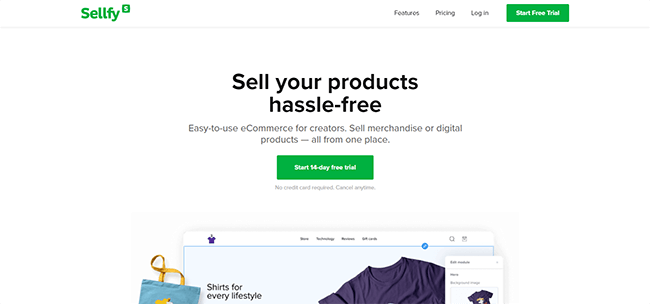
Subscription management is a tough one for many small businesses. It’s why you need a subscription ecommerce platform like Sellfy, which makes getting your online store off the ground easy.
Sellfy helps you to sell digital goods, video streams, and physical products like a boss. It doesn’t matter what you want to sell, the Sellfy ecommerce platform makes it simple to charge recurring payments for your products or services.
In the time it takes the next guy to finish a sandwich, you can effortlessly create a brilliant online business that represents your unique brand. You can customize the logo, change colors, and switch the layout of your site without coding.
Additionally, you can link your existing store and automatically switch the store language (according to the customer’s location) to strengthen your brand. There is also a mobile-ready shopping cart that allows you to earn more recurring revenue on the fly.
You’d be 100% wrong if you assumed that was all. Sellfy comes with great marketing tools such as discount codes, email marketing, upselling, and tracking pixels. Now you can build an online business and market it on one ecommerce platform.
On top of that, you can sell on your website, social media, or anywhere else thanks to features such as buy buttons, product links, store embed, and YouTube end screens. Other than that, you have reliable payment gateways such as PayPal and Stripe to keep all transactions secure.
Pros
- Easy to set up
- Free 14-day trial
- 30-day moneyback guarantee
- Sell all kinds of products including print on demand merch
Cons
- Less flexible
- Limited SEO capabilities
- Poor Google PageSpeed scores
Pricing
Paid plans start at $22 per month. Always go for a plan that works for your business.
#2 – Podia
Are you in a hurry to get your ecommerce subscription business up and running in under 10 minutes? If so, Podia is exactly the ecommerce platform for subscriptions you need.

Podia is a popular subscription ecommerce platform with over 150k creators. It offers you a nice blend of ecommerce store tools that help you to sell subscription products easily.
Building a store on Podia is as easy as A, B, and C. You don’t need prior coding skills or any technical knowledge to whip an amazing store instantly. They offer you a fantastic website builder that even a fourth-grader can use.
During our research, we found out that Podia is the easiest subscription ecommerce platform to use. It’s intuitive and quite innovative. Plus the list of features was quite impressive, we were completely blown away.
Podia allows you to quickly start selling subscriptions for anything you can imagine. You can sell webinars, digital downloads, online courses, coaching, and everything in between.
Sweet recurring payments aside, what else does Podia offer?
The best thing I love about Podia is its community feature. It allows you to create engaged communities around your brand. That way, you can foster camaraderie and boost engagement on your subscription website.
To help you spread the word, they offer you several marketing tools. There is affiliate marketing, chat widgets, email marketing, embeds, a custom website, and so much more at your disposal. You really can’t go wrong with Podia.
What about subscription management?
Do you know what’s even better? They handle subscription management for you. You don’t have to worry about hosting or choosing a payment gateway and all that techy stuff. It’s akin to running your subscription ecommerce business on autopilot.
If you’re not tech-savvy and ease of use is a deciding factor here, Podia is the best subscription ecommerce platform that your business needs. Otherwise, keep reading for more subscription ecommerce platforms.
Pros
- All-in-one subscription ecommerce platform
- No transaction fees on paid plans
- Unlimited online courses and students
- Free-forever plan
- Intuitive website builder
- Community feature
- Email marketing and customer messaging via chat
Cons
- No open API
- The page builder could use some improvements
Pricing
Just like Sellfy, Podia has a free-forever plan with limited options. If your business needs more features, you can spring for any of the premium plans. Paid plans start at $33 bucks a month.
#3 – Shopify
If you’ve never heard of Shopify, you’ve been missing out. Shopify is a versatile platform specifically geared towards ecommerce. It is one of the best subscription ecommerce platforms to ever grace the internet.
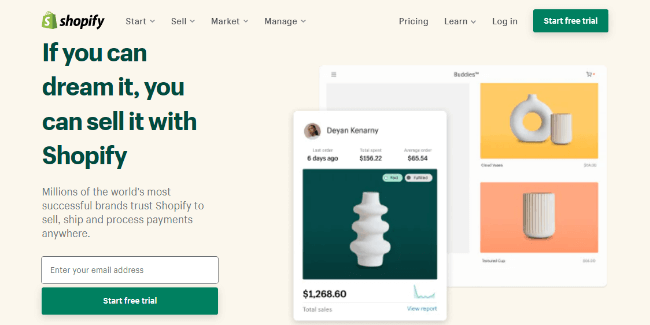
Oh mighty Shopify, how far you’ve come. Launched way back in 2006, Shopify is a strong contender on today’s list of subscription ecommerce platforms.
We have seen Shopify improve its product over the years, and it’s only fair to say they’ve done an impressive job.
For subscription sales specifically, Shopify offers integrations with a large number of third-party apps. This allows you to use one of the best ecommerce store builders & choose the best way to integrate subscriptions into your business.
It is a solid subscription platform, so let us see what they offer.
For starters, Shopify comes with a strong website builder (albeit a tad rigid in my opinion). I feel if they made the website builder more beginner-friendly, they would steal the show.
Still, it’s relatively easy to use once you get the hang of things. On top of that, they offer you multiple templates to create a decent enough store. And, if you know your way around HTML and CSS, you can customize things further.
That said, Shopify performs extremely well in the ecommerce department. Firstly, they offer you great options to get your store branding right. You can easily generate a business name, logo, domain, and jazz up your ecommerce site with stock photography.
Secondly, they offer you a ton of sales channels. You can sell subscriptions on your online store, point of sale, a buy button that you can add to your existing site, or via other channels such as Facebook, Google, TikTok, Walmart, and so on.
You don’t have to worry about marketing your subscription business with Shopify. They have email marketing, Facebook Ads, business chat, customer groups, and – the icing on the cake – marketing automation.
But what about customer relationship management?
You needn’t worry about that either. Shopify comes with a nice dashboard that allows you to keep an eye on everything.
Plus, they have a built-in payment gateway meaning you don’t have to worry about third-party payment gateways to process your online payments.
Lest I forget, these folks have a Shopify app store that makes integrating your store with subscription extensions way easier. It means you don’t have to go elsewhere to supercharge your subscription ecommerce business.
With such a combination of features, you don’t have to wonder why Shopify has millions of customers in over 175 countries.
From their site, they’ve helped their customers make over $490 billion. It’s quite a sum which means they know what they are doing. Also, it means you’re in safe hands.
Note: Shopify doesn’t support subscriptions natively. You will need to integrate third-party providers.
Pros
- Multiple marketing channels
- Decent store themes
- Fast page load speeds
- One-click selling
- Easy to set up
Cons
- Rigid website builder
- SEO performance can be improved
- Requires integrating with third-party tools to sell subscriptions
- Apps can be costly
- If you’re not one, you will need a developer for advanced customizations and features
Pricing
Paid plans begin at $5 per month. Yearly discounts available. Get started with a 3-day free trial, then $1/month after for 3 months.
#4 – Squarespace
When I first tried Squarespace years ago, I enjoyed the experience as you would a teaspoon of sand in your coffee. You wouldn’t. Many years later, however, Squarespace has grown into a formidable website builder and subscription ecommerce platform worth a slot in our article.

Do you know what’s hard? Trying to navigate the world of subscription management, recurring payments, and whatnot without a proper tool.
Well, Squarespace offers you just the tool you need to give your subscription business wings. You can always choose any of the other subscription ecommerce platforms but hear me out before we throw Squarespace to the dogs.
If you were to collect recurring payments from your subscribers, you would need a subscription platform, subscription management software, and payment gateways. Does Squarespace offer these things? Yes, it does, and then some.
Firstly, Squarespace ships with an amazing website builder that allows you to create impeccable and professional websites in drag-and-drop style.
Without such a tool, you’d incur high website development costs, and then cough up some more money for payment processing – two expenses that small businesses don’t want.
That’s where ecommerce platforms such as Squarespace come in. They offer you everything you need from payment processors that automate payments and increase subscription sales, to tools that let you manage your subscription products.
Squarespace is one of those subscription ecommerce platforms that help you save money. Primarily, it is a website builder, but it offers you a lot of tools that make selling subscription products a lot cheaper than coming up with your subscription management software.
For instance, instead of hunting for a payment provider, Squarespace allows you to fashion a nice ecommerce website that’s ready to sell to the entire world.
All you have to do is build a website and start selling your subscription plans. They offer you a lot of beautiful templates that you can customize to your liking.
The ecommerce website builder is incredibly easy to use and helps you to set up an online shop easily even as a beginner.
Squarespace handles the technical stuff, just like Shopify, meaning you don’t have to worry about payment gateways, mobile commerce, different payment methods, and all the stuff that would drive any beginner crazy.
Pros
- Sleek templates
- Easy to set up
- Perfect for simple stores
- Great SEO tools
Cons
- No app store
- Few third-party integrations
- Supports just two payment providers, i.e., PayPal and Stripe
Pricing
Considering what the competition is offering, I feel Squarespace can do better. They also need to improve their website builder, which is a bit clunky.
The Business plan starts at $18 per month when billed annually. All the same, I would say they have reasonable pricing for the value you’re getting.
Higher-priced plans allow abandoned cart recovery, gift subscriptions, and better discounts.
#5 – Payhip
Payhip is a lot like Podia. They offer you an all-in-one solution to sell your subscription plans. You can sell digital downloads, online courses, coaching, memberships, and physical products.
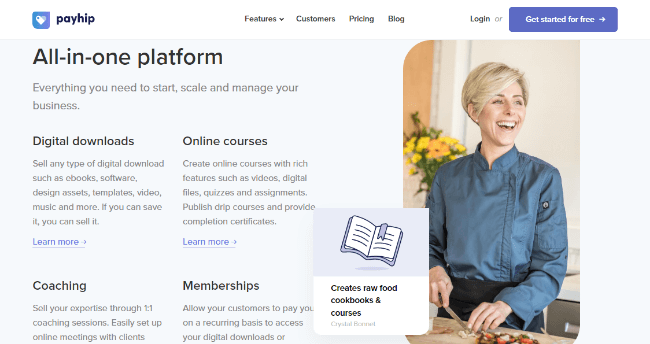
They offer you a ton of thoughtful features that help you sell ecommerce subscriptions like a pro. For starters, you have a fully customizable store builder that helps you to create the website of your dreams without coding.
Secondly, you can strengthen your brand further by connecting a custom domain or subdomain for free. Additionally, you can add Payhip’s subscription capabilities to an existing website using embeds.
Trusted by more than 130k creators, Payhip is user-friendly and simple to integrate with other subscription apps. Payment processing is effortless, and customers love how Payhip handles VAT and taxes.
If you sell subscriptions, you’re in great company here. Plus, you can start for free and cancel any time you want. They offer you a set of excellent marketing tools including email marketing, coupons, and upsells.
Pros
- Easy to set up
- It’s free
- Lots of marketing tools
- Best-in-class pricing tiers
- VAT and sales tax handling
- Visual analytics
- You can use all the features even in the free plan
Cons
- 5% transaction fee for the free plan
- Paid plans are a bit pricey
- The store builder has some bugs but they keep improving it
Pricing
Payhip offers you a free plan that comes with all the features. You, however, have to part with 5% per transaction. The Plus plan will set you back $29 + a 2% transaction fee.
Read our Payhip review.
#6 – SendOwl
SendOwl is a state-of-the-art shopping cart that bridges the gap between you, your customer, and payment gateways. It helps you manage recurring billing and payment processing thanks to built-in subscription features.
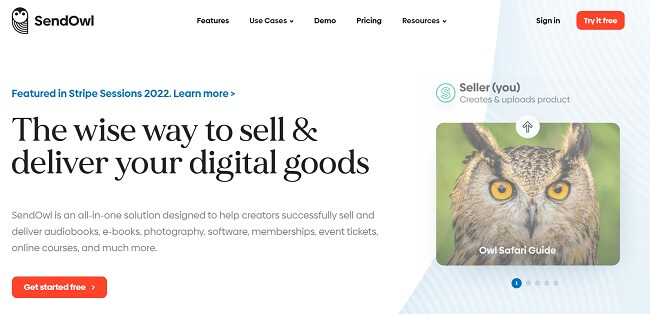
Subscription services are usually complicated and hard to use for the average marketer. Some have steep learning curves or buggy interfaces that make selling subscriptions a nightmare.
But SendOwl will have none of that drudgery, which is probably why it is used by big-name brands such as the Universal Music Group and Semplice.
Thanks to a fantastic suite of subscription features, the platform makes selling subscriptions incredibly easy. You can now analyze and manage different parts of your store from a single dashboard.
You can use SendOwl to sell on your site, integrate with your Shopify store, or sell on social media. Further, you can automate and scale your marketing with features such as affiliates, cart abandonment emails, cross-selling, and one-click upsells.
In the design department, SendOwl doesn’t disappoint either. You get some nice and clean templates that are easy to customize. You can easily switch colors and customize other styling settings to create a store that reflects your band.
Pros
- Easy to set up
- Wide range of features including multiple payment gateways
- An amazing analytics dashboard
- Automatic order fulfillment
- Perfect for bloggers looking to sell premium content
- Free plan
Cons
- No community groups
- Limited design elements for marketers
- No A/B testing for templates
- The free plan attracts a 5% transaction fee
Pricing
Like Payhip, SendOwl has a free plan but they will take a 5% transaction fee. They also have a Growth plan for $19 per month, which is quite affordable for a subscription ecommerce platform of this nature. There is also a commerce advanced plan for high-volume sellers.
Read our SendOwl review.
#7 – Lemon Squeezy
Lemon Squeezy is a fantastic subscription ecommerce platform that makes selling digital products, subscriptions, and software licenses simple and fun.
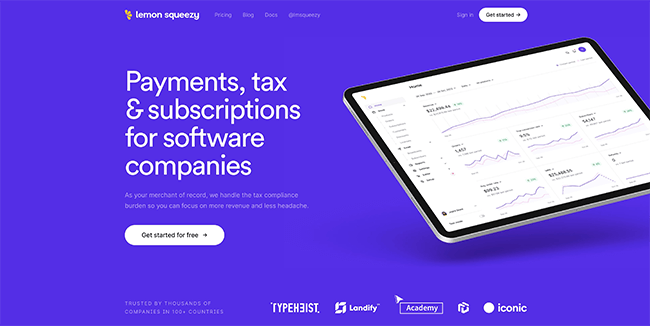
Lemon Squeezy comes with an intuitive page builder that helps you create a professional website within minutes with no coding. Within no time, you can have a store up and running and start receiving automatic payments.
You can grow your audience, create long-lasting customer relationships, and increase sales using easy-to-use marketing tools. You can sell products individually or bundle them together to earn more cash.
On top of that, you have other tools such as email marketing, upsells, discount codes, and lead magnets to increase conversions.
Lemon Squeezy is a simple all-in-one toolkit. You don’t need extra plugins to sell and manage your business. The platform offers your business insights and invoicing. You also don’t have to worry about tax compliance. Everything is handled for you.
Pros
- Easy to set up and use
- Free account
- Simple agent panel
- Simple ticketing system and live chat
Cons
- They don’t have a mobile app for iOS yet
- They could make it work with tools such as Slack
- Can get costly
Pricing
There are no monthly charges for ecommerce features. You are charged 5% + 50c per sale.
Monthly or annual charges for email marketing features are based on the total number of subscribers you have and are free for up to 500 subscribers.
#8 – BigCommerce
BigCommerce is a trusted B2C and B2B ecommerce platform that offers SaaS services to big and small retailers. They provide hosting, marketing, search engine optimization, and security services in one neat package.
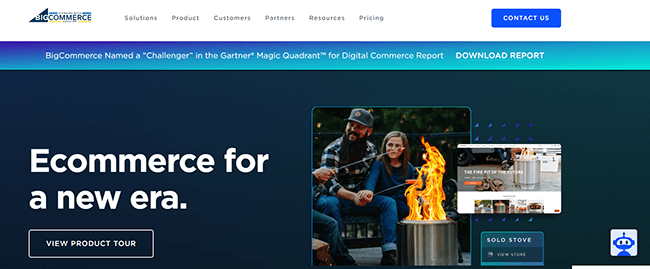
BigCommerce is the world’s most acclaimed commerce platform. It offers two kinds of products. You have an Enterprise package that’s suitable for big companies. Then there is the Essentials package, which is perfect for small stores.
The platform offers a fantastic site builder that helps you to customize your web pages to match your brand. You can start with a customizable theme or build your website from scratch. If you use WordPress, BigCommerce has a plugin to add ecommerce functionality to your website.
Additionally, BigCommece offers you plenty of marketing tools to supercharge your store. You have discount codes, SEO tools, abandoned cart recovery, and customer segmentation. You also have the option to add a blog to your website, which helps you attract organic traffic.
Further, you can sell subscriptions on your online store or social media, which allows you to reach a wider audience and new markets.
BigCommerce offers a solid ecommerce solution to start selling subscriptions today. They have a free trial that lets you try the platform risk-free. Note that BigCommerce, like Shopify, requires 3rd-party integrations for subscriptions and some of those will incur additional fees
Pros
- Powerful SaaS platform with many features
- Scalability
- Tons of integrations
- A lot of flexibility
- Solid SEO features
- No transaction fees
- Blazing-fast speeds
Cons
- Yearly sales threshold – each plan has annual sales limits
- Subscriptions require integrations with a third-party provider
- No email marketing – you have to find a third-party provider
Pricing
Paid plans from $39/month (save 25% with an annual subscription). 15-day free trial available.
#9 – Wix
The Wix ecommerce platform offers businesses of all sizes the tools they need to sell online. It’s a leading and modern commerce solution that’s perfect for your subscription business.
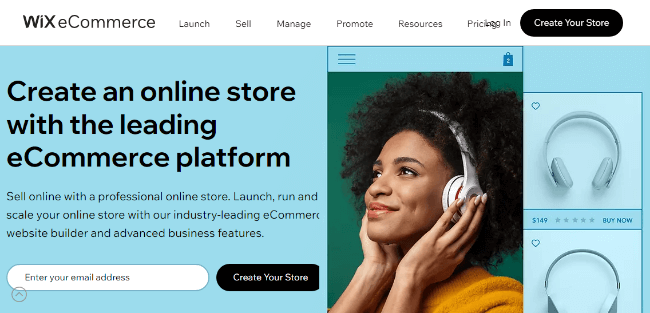
Wix comes with a ton of professional tools that help you to launch and grow your online business quickly.
For starters, you can choose from over 500 customizable templates that are optimized for conversion.
If you’re feeling creative, you can start with a blank template and create your store from scratch. Don’t forget to delight your customers with themed subscription boxes.
After launching your website, you can start selling subscriptions on multiple channels, including Facebook, Instagram, and Amazon.
Wix offers you a suite of professional marketing tools allowing you to target the right customers. You have SEO tools, email marketing, automated Facebook and Instagram ads, abandon cart recovery and more.
You collect recurring payments via Wix Payments or global payment providers, including all major credit card companies, PayPal and Stripe.
Pros
- Nice templates optimized for conversion
- Intuitive dashboard
- An all-in-one solution meaning you don’t need a second service
- Tight security
- Free domain for 1 year
- Good site speed
Cons
- The Business Basic plan doesn’t offer subscriptions. You need at least the Business Unlimited plan for subscriptions.
- Drag-and-drop templates limit your creativity
- Your site isn’t transferable
Pricing
Wix offers three pricing packages. You have Business Basic ($17 per month), Business Unlimited ($25 per month), and Business VIP ($35 per month).
#10 – WooCommerce
WooCommerce is your best subscription ecommerce platform if you already run a WordPress website. The WooCommerce plugin offers you a ton of tools to turn your site into a powerful ecommerce store.
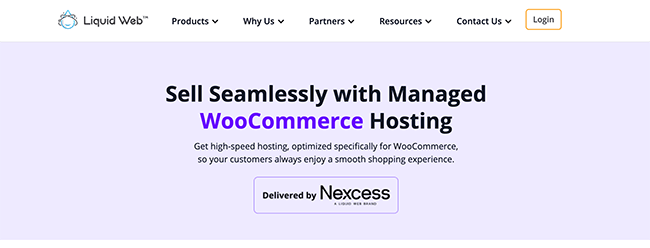
With more than 5 million active installations, WooCommerce is the most popular open-source ecommerce platform for WordPress websites. The core WooCommerce plugin is 100% free. However, you need to buy the WooCommerce Subscriptions add-on to enable subscriptions.
WooCommerce is quite flexible offering you exactly what you need to create a bespoke subscription store. And since it’s open-source, you have full ownership of your store. You also have complete control over how your store looks.
For the design, you have thousands of fully customizable themes at your disposal. On top of that, you can hire a developer to design a custom theme if you lack the skills. For extra functionality, you have over 50k free and paid plugins.
WooCommerce comes with automatic tax and shipping calculators. You also have an inbuilt cart that easily integrates with major payment solutions, including WooCommerce Payments, Stripe, and PayPal.
WooCommerce is SEO-friendly but you can use tools such as Yoast SEO to improve your chances of ranking in search engines for your target keywords.
Due to the resource-intensive nature of a WooCommerce store, you need a powerful web host such as Liquid Web.
Pros
- Full control over your site
- Complete ownership of your store
- SEO-friendly
- A ton of features
- Quick install
- Automatic tax and shipping calculation
- Many different payment solutions
Cons
- It may take time to create a great store, especially as a beginner
Pricing
Our preferred WooCommerce host, Liquid Web, offers a couple of flexible packages. Paid plans start at $21/month, with annual discounts available.
Frequently asked questions
- What is a subscription ecommerce platform? – An online ecommerce website that allows you to sell subscriptions. The platforms above are all great examples.
- How much does it cost? – It depends on the features you need and the platform you choose. Some platforms include the ability to sell subscriptions natively. While others such as Shopify and BigCommerce offer access to a range of third-party integrations to set up subscription payments.
- Do I need design skills? – Not necessarily. Most platforms come with easy-to-use site builders that require no coding.
- What kind of products can I sell online with subscriptions? – Anything under the sun, both digital and physical products.
- Which is the best subscription ecommerce platform? – It depends on your budget and, more importantly, business needs.
Conclusion
We hope our list of the best subscription ecommerce platforms helped you make the right choice for your business.
The platform that you eventually pick depends on your business needs and preferences.
It’s also worth considering your future needs. For example, if you want to sell digital products, a platform like Sellfy and Podia are great options. Or if you want to launch a full online store, an industry leading ecommerce platform like Shopify or BigCommerce will work best. You can then use one of their integrations to add subscription payments.
Related Reading:
- 25+ Top Ecommerce Statistics And Trends
- The Best Print On Demand Sites: Pros & Cons
- 60+ Trending Products To Sell Online
- The Best Shopify Alternatives & Competitors Compared
Disclosure: If you buy through links on our site, we may make a commission. This helps to support the running of Startup Bonsai.
